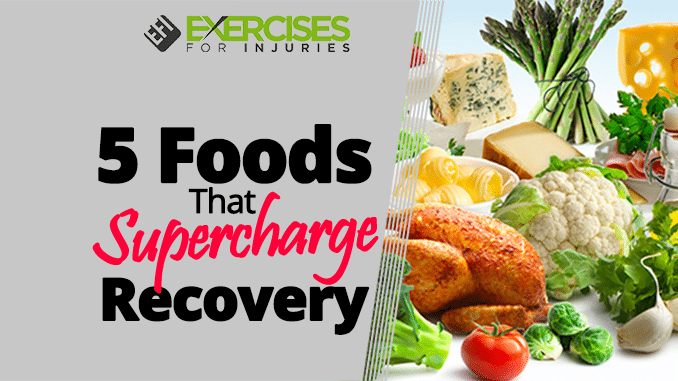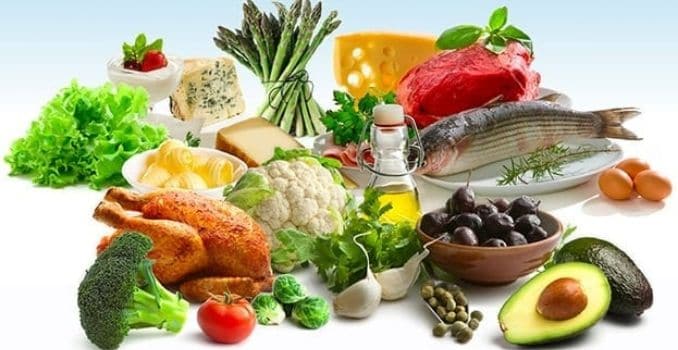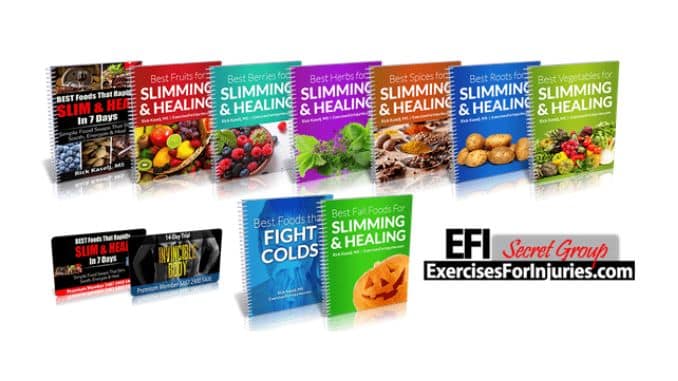
Today, I wanted to share a few things with you about nutrition as it relates to injury. The different foods that supercharge recovery. Of course, you know nutrition is a huge part of controlling your weight, but when you get injured, two things determine the length of your downtime:
- The severity of the injury,
- The degree to which your body is nutritionally prepared to handle the new stress.
First, have you ever pulled a muscle (like a hamstring, back, or tweaked neck) and spent weeks in pain with a limited range of motion and mobility? Maybe you swelled up like a softball or ended up with chronic pain or discomfort?
We have all experienced an injury on some level. Still, the body heals from the inside out. Of course, rest, icing, physical therapy exercises, and mobility work can help strengthen muscle fibers and restore some of your range of motion.
By following the nutritional tips below and consuming these five foods before, during injury, and during recovery, you will decrease your recovery time and spend less time swollen and in pain!
1. Protein: Grass-fed beef, free-range chicken, fish, eggs
- The body needs 75-100g/day to maintain muscle mass & soft tissue.
- Injury automatically increases the demand for protein, as multiple processes that occur as soon as an injury happens and during recovery require it.
- Speed and quality of recovery largely depend on your consumption of adequate amounts of high-quality protein.
2. Vitamin C: Berries, citrus, kiwi, peppers, broccoli
- The body cannot produce vitamin C from within, so we must consume it.
- Vitamin C helps the body build new proteins for the skin, scar tissue, ligaments, tendons, and blood vessels.
- Helps to maintain cartilage and bone tissue.
3. Vitamin A: Carrots, sweet potatoes, spinach, winter squash
- It promotes the production of white blood cells, which helps the body fight off infection and viruses.
- White blood cells also protect the site of external and internal injury, increasing the healing rate.
4. Omega-3 Fatty Acids: Salmon, flax seed, walnuts
- Studies show these fatty acids can help the body reduce inflammation to the point of being able to eliminate the need for painkillers in patients with rheumatoid arthritis.
- They help reduce swelling and alleviate pain, ultimately promoting healing.
5. Zinc: Oysters, nuts, seeds, chicken
- Every single tissue in the human body contains zinc.
- Helps the body use fats and proteins consumed to promote the growth and healing of injured tissues.
- Helps keep the immune system strong.
As a bonus tip, I wanted to quickly touch on the myth that you gain weight when injured. (mainly due to the thinking that you will be bedridden or stuck on the couch recovering). And how this type of thinking can cause you to stay in recovery longer, lose muscle mass, and end up weaker than you were before you were injured.
It’s important to know that when an injury happens, the body burns 5-50% more calories than when normally at rest, depending on the severity of the injury.
It is also important to know that if you are a chronic dieter or have poor eating habits, you are most likely in a state of malnutrition and are prone to injury.
Therefore, it is extremely important to maintain proper nutrition before, during, and after any injury to maximize your body’s healing potential and minimize recovery time.
Rick Kaselj, MS
For your guide to the best foods to heal your body, check out The Best Foods that Rapidly Slim & Heal in 7 Days here!


